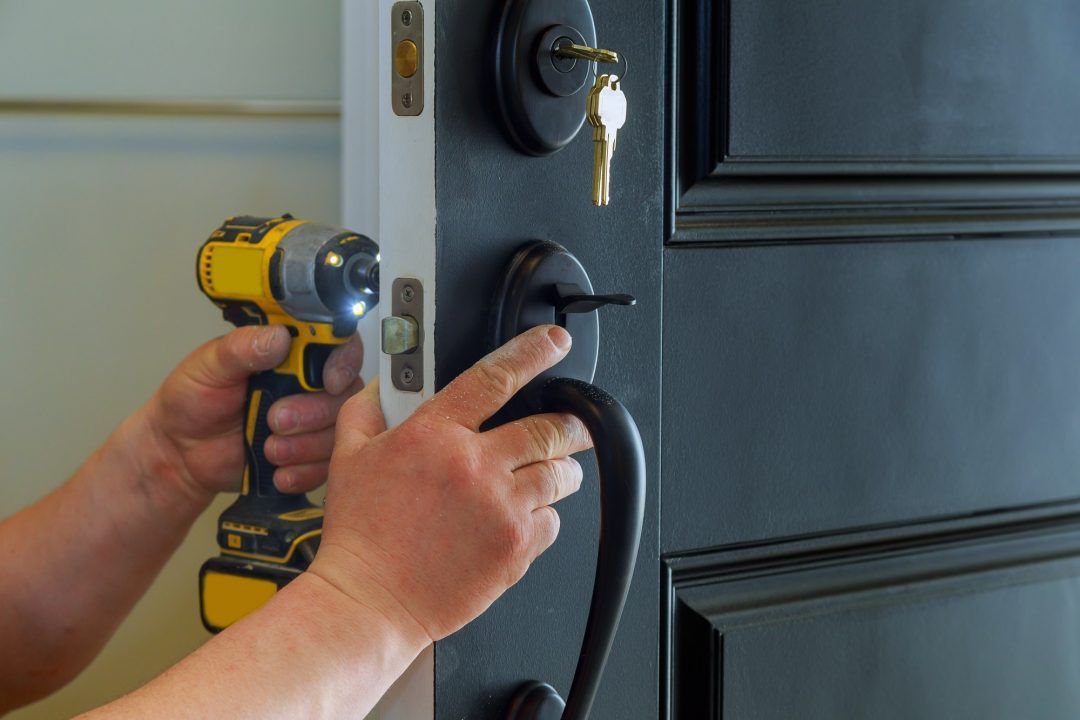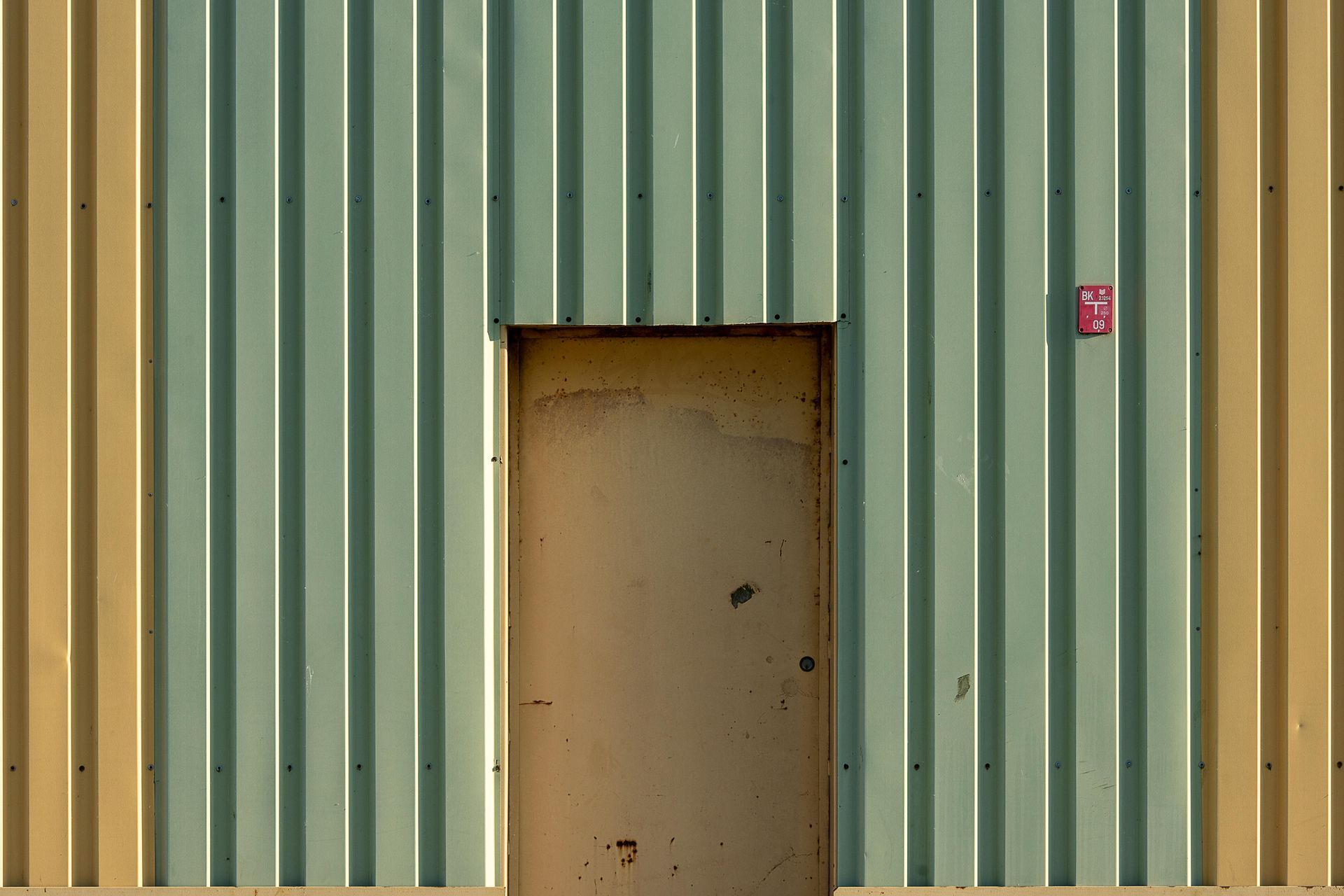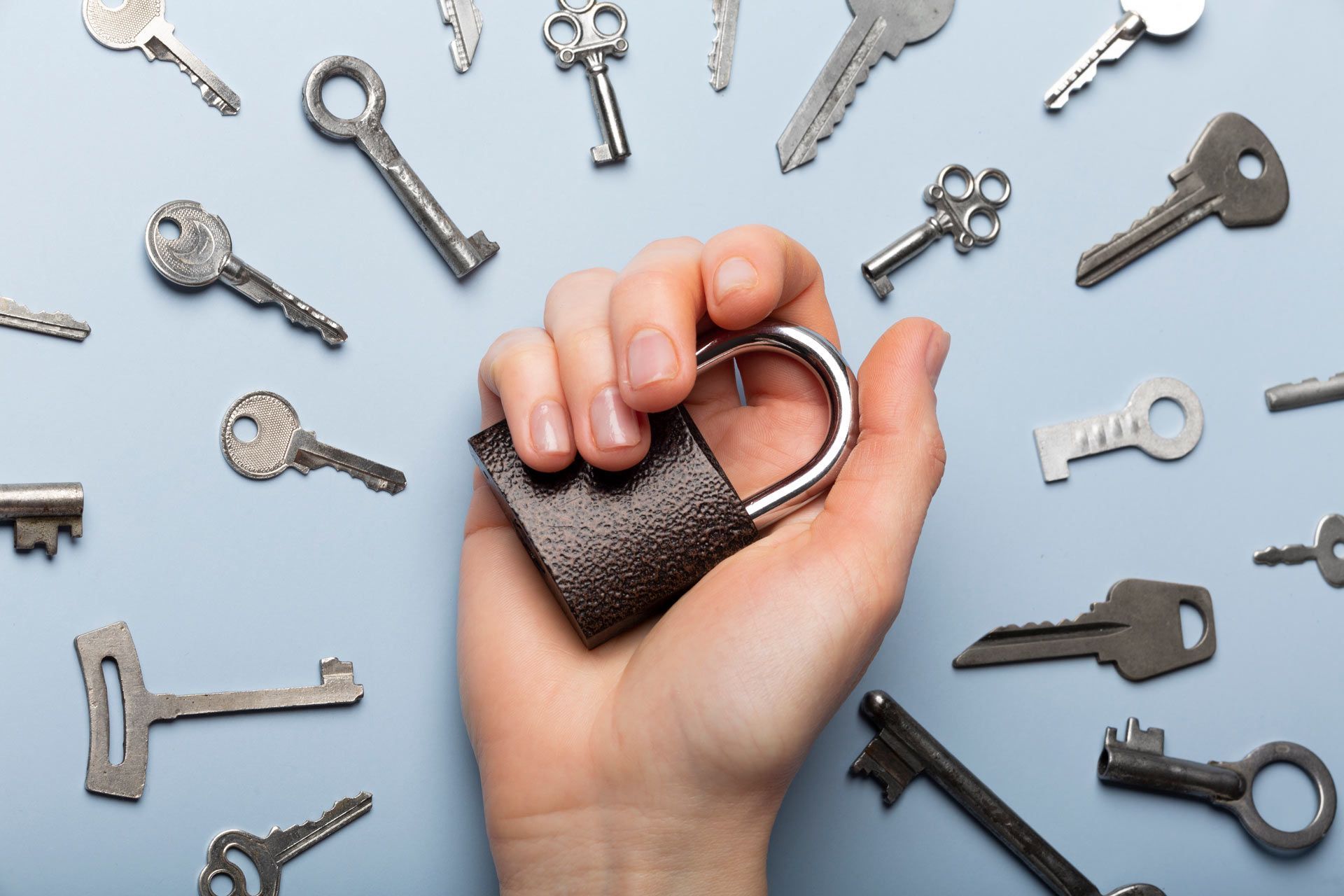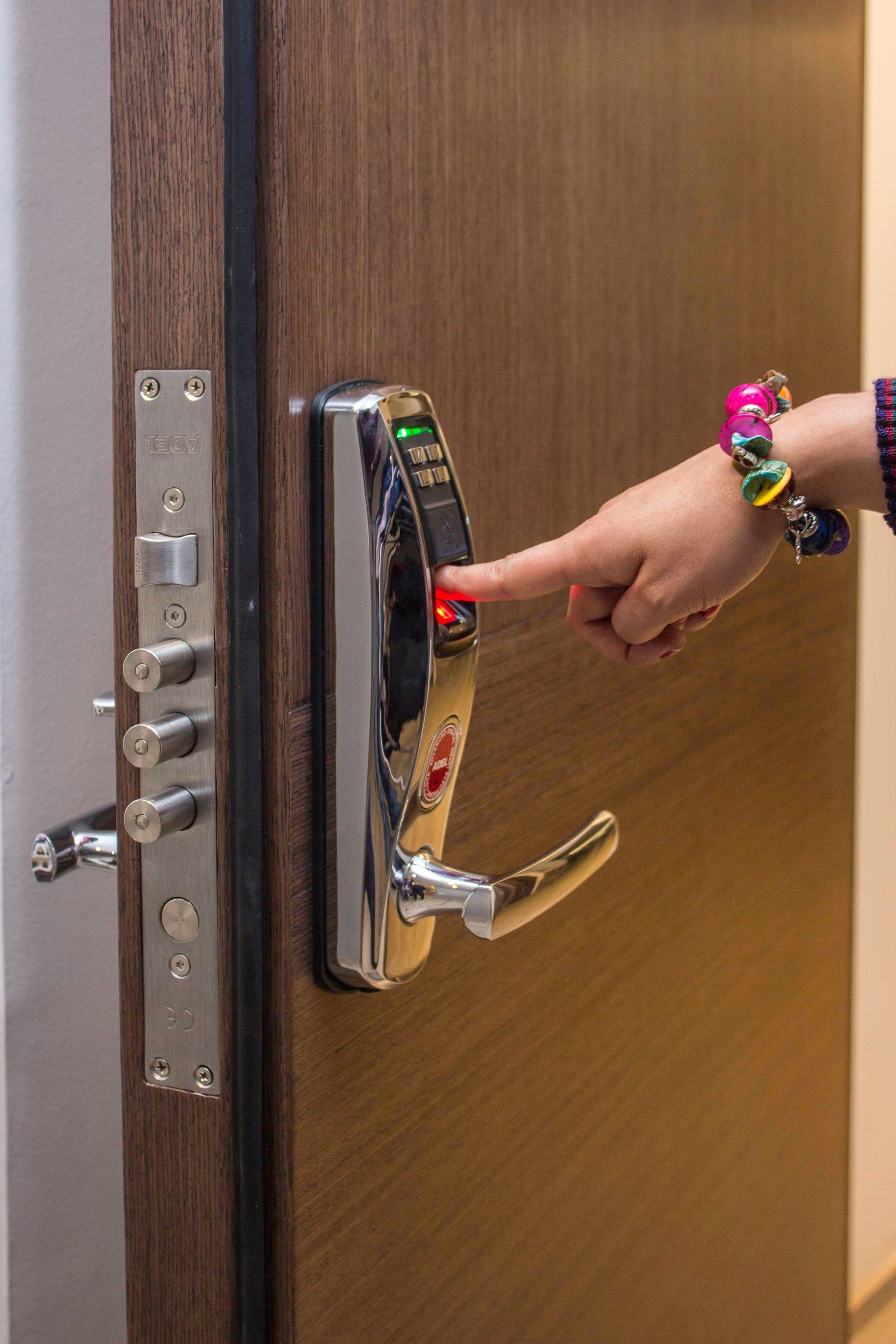Residential vs. Commercial Locksmiths: Which Do You Need? (Call Now)

Understanding Residential Locksmith Services
A. Key Home Security Solutions Offered
Ever been worried about your home's security? You're not alone. Residential locksmiths offer way more than just cutting keys.
The bread and butter of residential locksmith services includes:
- High-security lock installation
- Deadbolt upgrades
- Peephole installation
- Window locks and security bars
- Mailbox locks
- Gate locks and padlocks
Most homeowners don't realize their standard door locks offer minimal protection. A skilled residential locksmith can assess your current setup and recommend locks that actually keep the bad guys out. They know which brands resist picking and bumping techniques that amateur burglars use.
B. Emergency Home Lockout Assistance
Locked yourself out at 2 AM? Been there. Residential locksmiths are the heroes who show up when you're standing outside in your pajamas.
Good residential locksmiths typically:
- Arrive within 20-30 minutes
- Work with minimal damage to your locks
- Charge fair rates even for after-hours service
Unlike DIY methods you might find online (which often damage your door), professionals use specialized tools to open locks without destroying them.
C. Residential Lock Installation and Repair
Your locks aren't working smoothly? That's not just annoying—it's a security risk.
Common issues residential locksmiths fix include:
- Sticky locks that need lubrication
- Misaligned strike plates
- Broken cylinders
- Jammed deadbolts
- Worn-out keys that need replacement
Quality installation matters too. Many homeowners don't realize that improperly installed locks, even expensive ones, provide little security.
D. Smart Home Lock Integration
The future is here, and it doesn't require keys.
Residential locksmiths now help with:
- Keyless entry systems
- Smart locks that connect to your phone
- Biometric access controls (fingerprint readers)
- Video doorbell integration
- Remote locking/unlocking capabilities
Think getting locked out is impossible with smart locks? Think again. Battery failures happen, and system glitches occur. That's why having a relationship with a residential locksmith who understands both traditional and smart lock systems is invaluable.
Exploring Commercial Locksmith Expertise
Advanced Security System Implementation
Commercial spaces demand robust security measures that go well beyond what you'd need at home. We're talking about multi-layered systems that protect assets worth thousands—sometimes millions—of dollars.
Commercial locksmiths don't just install locks. They integrate comprehensive security networks including CCTV cameras, motion sensors, and alarm systems that talk to each other. They know exactly where vulnerabilities might exist in your office building, warehouse, or retail space.
When was the last time your business had a proper security assessment? Most business owners I talk to can't remember.
Master Key Systems for Businesses
Ever watched a building manager juggling 50+ keys? Nightmare, right?
That's where master key systems come in. They're brilliantly simple: employees get access only to the areas they need, while managers carry a single master key that works everywhere.
A good commercial locksmith can design hierarchical systems with:
- Grand master keys (works everything)
- Master keys (works departments)
- Sub-master keys (team areas)
- Individual keys (specific doors)
This isn't DIY territory. The complexity requires professional implementation to avoid security holes.
Access Control Solutions
Physical keys are becoming dinosaurs in the commercial world.
Modern businesses are switching to electronic access control systems—card readers, keypads, biometric scanners, and smartphone-based entry. These systems give you:
- Real-time monitoring of who enters where
- Instant permission revocation when employees leave
- Time-restricted access (no more 3AM mysterious entries)
- Detailed access logs for security audits
Commercial locksmiths don't just install these systems; they program them to match your company's exact workflow and security protocols.
Commercial Safe Installation and Maintenance
Commercial safes aren't like the one you might have at home. They're beasts—fire-resistant, burglar-resistant, and often weighing hundreds of pounds.
Installing them properly requires specialized knowledge. The wrong installation could mean:
- Safes that can be removed by determined thieves
- Fire protection features that fail when needed
- Locking mechanisms that malfunction
Professional commercial locksmiths handle everything from installation to regular maintenance and repair of these crucial security elements.
Regular Security Audits and Maintenance
Security isn't a one-and-done deal. It's an ongoing process.
Commercial locksmiths offer scheduled security audits to identify weak points before criminals do. They'll check for:
Worn locks and hardware
- Outdated security protocols
- New vulnerability points
- Compliance with industry regulations
They'll also perform preventative maintenance on all systems—because the worst time to discover your security system has failed is after a break-in has occurred.
Key Differences Between Residential and Commercial Locksmiths
A. Scope and Complexity of Services
Ever walked into a locksmith shop only to be told "we don't handle that kind of lock"? Frustrating, right? That's because residential and commercial locksmiths often live in completely different worlds.
Residential locksmiths mostly deal with:
- Standard door locks and deadbolts
- Home safes
- Window locks
- Garage door locks
- Basic key duplication
Commercial locksmiths tackle much bigger beasts:
- Master key systems for entire buildings
- Electronic access control systems
- High-security commercial-grade locks
- Panic bars and exit devices
- Card reader systems
The complexity jumps significantly when you move from homes to businesses. A residential job might take 30 minutes. A commercial project? Could be days or weeks.
B. Equipment and Technology Variations
The tools in a residential locksmith's van look nothing like what commercial specialists carry.
Residential locksmiths typically work with:
- Basic lock picking tools
- Key cutting machines for standard keys
- Simple drilling equipment
- Manual lock installation tools
Commercial locksmiths roll up with:
- Advanced electronic diagnostic equipment
- Specialized programming devices for electronic systems
- Industrial-grade installation equipment
- High-tech key cutting machines for specialized keys
- Network testing tools for connected security systems
C. Response Time Expectations
Time matters differently depending on who you're calling.
Residential locksmith response times:
- Emergency lockouts: 15-30 minutes
- Standard service calls: Same day or next day
- Installation projects: Scheduled within days
Commercial locksmith timelines:
- Business-hour emergencies: 1-2 hours
- After-hours critical situations: Varies based on contract
- System installations: Scheduled weeks in advance
- Regular maintenance: Pre-scheduled quarterly or monthly
Locked out, gearing up, or securing what matters most—A-Area Locksmith responds within minutes across New Port Richey, Trinity, Tarpon Springs, Palm Harbor, Bayonet Point, Hudson, Shady Hills, Holiday, Odessa, Wesley Chapel, and Spring Hill.
Call now for rapid, professional service: (727) 942-6177.
D. Cost Structure Comparison
Your wallet will definitely feel the difference.
| Service Type | Residential Cost | Commercial Cost |
|---|---|---|
| Standard lockout | $75-$150 | $100-$250 |
| Lock change | $100-$200 per door | $150-$400 per door |
| New key creation | $2-$10 per key | $5-$50 per key |
| Security system | $300-$1,000 | $1,000-$10,000+ |
| Consultation | Often free | $100-$200 per hour |
Commercial costs run higher because of specialized expertise, higher-grade materials, and the increased liability that comes with securing a business property with valuable assets and sensitive information.
When to Call a Residential Locksmith
A. Home Lockouts and Lost Keys
We've all been there. Standing outside your door, patting your pockets in disbelief, hoping your keys will magically appear. Spoiler alert: they won't.
Home lockouts happen to the best of us. Maybe you rushed out to grab the mail in your pajamas. Maybe your toddler thought it'd be hilarious to lock you out. Whatever the reason, you need help fast.
A residential locksmith is your best friend in these moments. They can:
- Get you back inside without damaging your door
- Make new keys on the spot
- Replace locks if your keys are truly gone for good
Lost your keys somewhere between the grocery store and home? Don't panic. A good residential locksmith can rekey your locks so those missing keys become useless to anyone who finds them.
B. Moving Into a New Home
Just got the keys to your dream home? Congrats! Now throw those keys away.
Kidding, but only slightly. When you move into a new place, you have no idea who else might have copies of your keys. Previous owners, their relatives, contractors, neighbors—the list goes on.
Smart homeowners call a residential locksmith immediately after moving in to:
- Replace or rekey all exterior locks
- Create a new master key system if needed
- Ensure garage and shed locks are secure
- Check window locks and security points
This isn't being paranoid—it's being prudent.
C. Security Upgrades After a Break-in
Nothing feels worse than having your home's security violated. After a break-in, you need more than just a lock replacement—you need peace of mind.
A residential locksmith does much more than fix what's broken. They'll evaluate your entire home security setup and identify vulnerable points you never noticed.
After a break-in, consider having a locksmith:
- Install high-security deadbolts
- Reinforce door frames and strike plates
- Add door jammers or security bars
- Upgrade window locks and sliding door security
The best locksmiths don't just fix the entry point—they make sure it never happens again.
After a break-in, you don’t just need repairs—you need protection. A-Area Locksmith is the difference between feeling exposed and feeling secure, trusted across New Port Richey, Trinity, Palm Harbor, and beyond to rebuild your peace of mind, one fortified lock at a time.
Call now to reinforce your home security: (727) 942-6177
D. Installing Smart Home Security
The future is here, and it doesn't require keys. Smart locks, keypad entries, and biometric systems aren't just cool tech toys—they're serious security upgrades that residential locksmiths specialize in.
Why call a locksmith instead of DIYing your smart home security?
Professional residential locksmiths:
- Understand how mechanical and digital systems work together
- Can integrate your smart locks with existing security systems
- Know which products actually provide security (not just convenience)
- Can set up proper backup systems when technology inevitably fails
Remember, that fancy fingerprint lock is only as secure as its installation. A professional ensures your cool new tech isn't just an expensive doorknob.
When a Commercial Locksmith is Essential
A. Office Relocations and Security Overhauls
Moving offices isn't just about packing computers and furniture. Your security system needs a complete reset too. A commercial locksmith doesn't just swap out locks – they assess your new space, identify vulnerability points, and design a system that works specifically for your layout.
Most business owners don't realize that previous tenants might still have keys floating around. Commercial locksmiths handle complete rekeying and often recommend upgrades based on your specific industry risks.
B. High-Security Requirements
Regular locks from the hardware store won't cut it for businesses handling sensitive data or valuable inventory. Commercial locksmiths install high-security solutions that standard residential specialists simply don't stock.
Think biometric access controls, keycard systems that track who enters where and when, and locks designed to withstand picking and drilling. These aren't DIY solutions – they require specialized installation and programming.
C. Multi-Location Access Management
Running multiple locations? You need unified security that allows the right people access to the right places. Commercial locksmiths set up master key systems where:
| Access Level | Who Gets It | What It Opens |
|---|---|---|
| Grand Master | CEO/Owner | All locations, all doors |
| Location Master | Site Managers | All doors at specific location |
| Department Keys | Team Leads | Only their department |
| Individual Keys | Staff | Only their assigned areas |
D. Employee Turnover Security Protocols
Every time someone leaves your company, they take a security risk with them. Commercial locksmiths create turnover protocols that protect your business without breaking the bank.
Instead of replacing all locks when someone leaves (expensive and disruptive), commercial locksmiths can install electronic access systems where permissions are simply deactivated. No more wondering if that disgruntled ex-employee made copies of their keys
E. Compliance with Industry Regulations
Different industries have different security requirements. Healthcare facilities need HIPAA-compliant security. Financial institutions must meet banking regulations. Retail stores need specific security measures for insurance purposes.
Commercial locksmiths understand these regulatory landscapes and ensure your security systems keep you compliant. They provide documentation proving your security meets industry standards – documentation that can save you during audits or insurance claims.
How to Choose the Right Locksmith for Your Needs
Assessing Your Security Requirements
Picking the right locksmith starts with knowing exactly what you need.
Are you a homeowner who just moved into a new place? You probably need new locks installed or maybe you're thinking about upgrading to smart locks for your front door. Residential locksmiths handle these everyday home security concerns.
Running a business? Your needs are completely different. You might need access control systems, master key setups, or high-security commercial-grade locks that can withstand heavy daily use.
The security stakes aren't the same either. A home typically needs protection for family and personal belongings. A business might need to secure inventory, sensitive information, or comply with industry regulations.
Take a minute to write down your specific security concerns before making that call. Trust me, it makes the conversation with your locksmith much more productive.
Checking Credentials and Insurance
Never—and I mean never—hire a locksmith without proper credentials.
A legitimate locksmith should have:
- A valid business license
- Proper insurance coverage
- Certification from recognized organizations
Why does insurance matter so much? If something goes wrong during installation or repair, you want to know you're covered. Ask them directly: "Do you have liability insurance?" If they hesitate or say no, that's your cue to keep looking.
Many states require locksmiths to be licensed. Check if yours does, and don't hesitate to ask for proof. Reputable professionals will happily show their credentials.
Evaluating Experience and Specialization
All locksmiths aren't created equal. Some excel with residential properties while others focus exclusively on commercial security systems.
How long they've been in business matters too. An established locksmith with 10+ years of experience has likely seen and solved every kind of lock problem imaginable. They'll work faster and more effectively than someone who's just starting out.
Ask pointed questions like:
- "How many commercial properties have you secured similar to mine?"
- "Have you installed this specific type of lock system before?"
- "What's your experience with smart home security integration?"
Their answers will tell you if they're the right fit for your specific needs.
When it comes to securing your space, specialization isn’t optional—it’s essential.
From New Port Richey to Spring Hill, A-Area Locksmith brings over two decades of trusted experience in both residential and commercial security. Whether you're upgrading to smart tech or locking down a storefront, we’ve already solved the problem you’re facing—probably more than once.
Call (727) 942-6177 to get matched with a locksmith who fits your specific needs, not just the job description.
Reading Reviews and Getting Recommendations
Word of mouth remains the gold standard when choosing service professionals.
Ask your neighbors which locksmith they use. If you need a commercial locksmith, talk to other business owners in your area. People love sharing both horror stories and exceptional service experiences.
Online reviews can be helpful too, but dig deeper than just the star rating. Look for reviews that mention projects similar to yours. Pay attention to how the locksmith responds to negative reviews—it says a lot about their professionalism.
Don't just call the first locksmith that pops up in your search results. Take time to compare at least three different options before making your decision. Your security deserves that extra effort.
Conclusion
Choosing between a residential and commercial locksmith comes down to your specific security needs. Residential locksmiths specialize in home security solutions like lock installations, key duplications, and emergency lockouts. Commercial locksmiths offer more complex services tailored to business environments, including master key systems, high-security locks, and access control implementation.
Remember to consider the complexity of your security requirements, the type of property needing service, and the locksmith's specific expertise when making your decision. Whether you're securing your family home or protecting your business assets, partnering with the right locksmith ensures you receive appropriate, effective security solutions that provide peace of mind and reliable protection.
A-Area Locksmith brings over years of trusted expertise to homes and businesses across New Port Richey, Trinity, Tarpon Springs, Palm Harbor, Bayonet Point, Hudson, Shady Hills, Holiday, Odessa, Wesley Chapel, and Spring Hill. From residential lockouts to advanced commercial systems, we deliver fast, professional service tailored to your needs.









